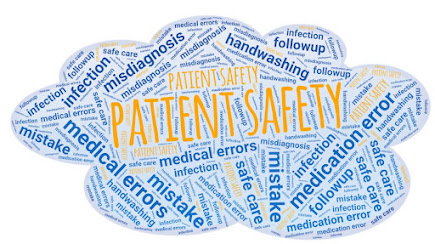Misdiagnosis a Proven Risk in Emergency Rooms
In case you missed it, a recent study reports that about 1 in 18 people are misdiagnosed in emergency rooms each year. The news article states: “The researchers estimate that 7.4 million misdiagnosis errors are made every year.”[i]
This was not, nor has it ever been, front page news. Some may not believe this is serious enough, but imagine the reaction to 370,000 disabling injuries or deaths and 2.6 million people harmed, due to any other cause. Some say that “more training” of healthcare professionals is a solution. But if patients do not change the ways they describe their symptoms, this will not change. It has not changed in the 25 years since I started this work understanding patient safety, and many say that with the personnel shortage and overworked medical staff, it’s actually worse.
As a patient advocate for the past 25 years, with more than 15 of those years at the bedside and with patients who describe their symptoms in the emergency room and in doctor’s offices, I can tell you the training must include patients and their families.
Accurate descriptions
Describing one’s symptoms is crucial to getting a correct diagnosis and appropriate care.
I often work with patients on how they will describe their symptoms.
- Your leg is not “killing you” unless you are bleeding to death but instead, you may not be able to put full pressure on it.
- You “can’t walk”? Or is it painful to walk, and if so, where? On a scale of 1 to 10, how painful?
- You can’t breathe? Chances are you would be dead. Does it hurt when you breath? Or do you feel like you are gasping for air?
Does a person with new symptoms keep a history of them? A list of medications and when they were started?
Opportunities for error
If you’re feeling dizzy in the last few days, that may be caused by a new medication, a new diet, or a new perfume; or it may be something more serious, but at least if you have the history, you can go over it with the medical team.
Are the staff in the emergency room rushed? Do you feel like they could do more and may have missed something? Did they forget to take vitals or a history?
These are all opportunities for error. Medical professionals are human and may make mistakes. That is why we at Pulse Center for Patient Safety Education & Advocacy have always encouraged patients and their families (or a patient advocate) to be involved.
Some medical establishments are currently keeping families or advocates away. (Such as this recent visitor policy on a website: Medical/Surgical and Critical Care Units: 12pm-8pm, maximum of 2 healthy visitors at a time). You may want to find out the visitor policy before choosing a healthcare facility.
STARS
Find here the STARS card which we use to help people chart their symptoms
 before seeing the doctor or entering an emergency room. And most important, keep the statistics
mentioned above ready, so if you are ever told “don’t worry”, you can prove
that you have reason to worry.
before seeing the doctor or entering an emergency room. And most important, keep the statistics
mentioned above ready, so if you are ever told “don’t worry”, you can prove
that you have reason to worry.Additional information on diagnostic,errors can be found at MISDIAGNOSIS - Pulse Center for Patient Safety Education & Advocacy
Check out www.PulseCenterforPatientSafety.org for more information or contact icorina@pulsecenterforpatientsafety.org











